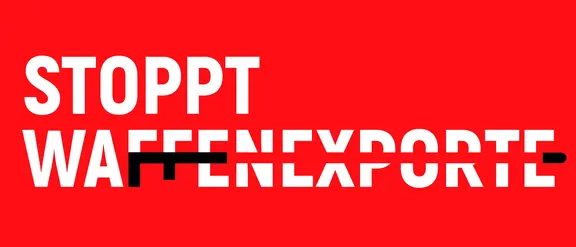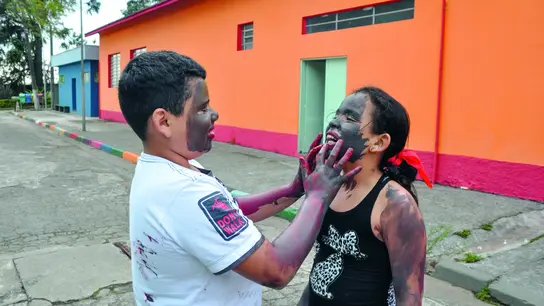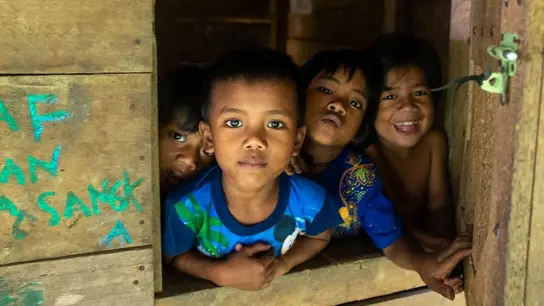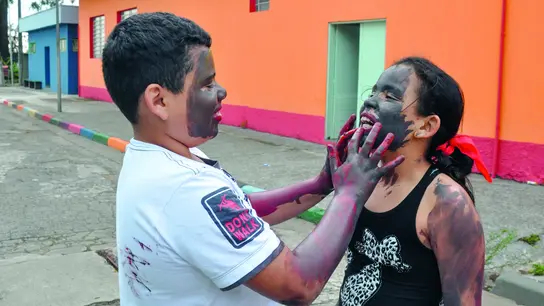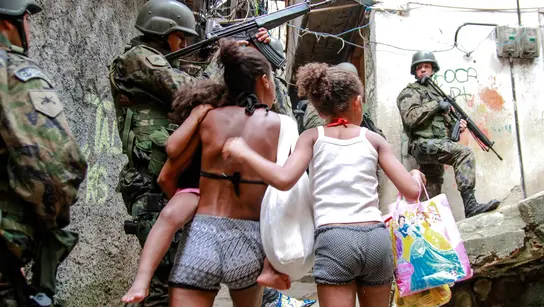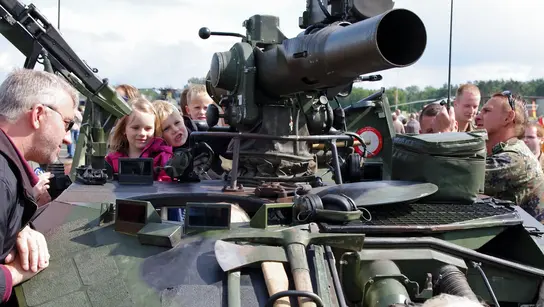Small arms - data and facts
Small arms are the weapons of mass destruction of the 21st century: the vast majority of war victims, especially civilians, are killed by small arms. They can be used for up to 50 years and are easy for even children to operate. Even if they were once legally exported, they often find their way into the hands of terrorist groups, private armies, and criminals. Germany is one of the largest manufacturers and exporters of small arms. Manufacturers include Heckler & Koch, Rheinmetall, Diehl, Walther, and Sig Sauer. The G3 assault rifle from Heckler & Koch alone has ten million units in circulation in at least 80 countries worldwide. Only the Kalashnikov is more widespread. In some places, a Kalashnikov costs no more than 30 US dollars – the world's crisis zones are being flooded with such cheap weapons and ammunition.
Every 14 minutes, someone dies solely as a result of weapons manufactured by Heckler & Koch, Germany's leading pistol and rifle manufacturer. This estimate by the Freiburg Arms Information Bureau is based primarily on Heckler & Koch's global market share in small arms and known estimates of small arms casualties in armed conflicts (approximately 95 percent of total casualties).
Germany's role in arms exports
Germany plays a major role in the production and export of small arms. For years, the German arms industry has been one of the five largest arms exporters, alongside the USA, Russia, China, and France. Small arms are a massive component of these exports. According to the Stockholm International Peace Research Institute (SIPRI), six of the ten most significant exporting nations are EU member states.
Especially in countries with large numbers of child soldiers, such as Iraq, Afghanistan, Myanmar, Colombia, Yemen, Somalia, or Sudan, there are masses of small arms of German manufacture , such as the MG3 machine gun from Rheinmetall, the G3 assault rifle and the MP5 submachine gun from Heckler & Koch, and the Walther P99 or Sig Sauer SP 2022 pistols. Illegal armed groups such as Colombian paramilitaries, the Taliban, or the Islamic State, who are responsible for the massive use of child soldiers and other acts of violence, use German-made weapons.
Saudi Arabia and the United Arab Emirates lead a military coalition, currently comprised of eight countries, that has been waging war in Yemen since 2015. According to the United Nations, at least 8,000 children have been killed or maimed in the armed conflict, almost half of them (3,550) by the Saudi-led coalition. The coalition has also committed other serious violations of children's rights, such as attacks on schools and hospitals. Despite this, since 2015, member states of this coalition have received German arms export licenses worth €6.4 billion for a wide range of weapons systems, from small arms to fighter jets. Many of these are being used in the war in Yemen.
Such arms exports to countries involved in serious human rights violations or armed conflicts are illegal and must be stopped. They violate not only the principle of peace enshrined in the German Basic Law, but also international treaties such as the Arms Trade Treaty, the EU Common Position on arms exports, and the UN Convention on the Rights of the Child. This is demonstrated by the authors of the Terre des Hommes study “ German Arms Exports – European and International Obligations ,” Professor Dr. Thilo Marauhn and two other international law experts. An exception is made for arms exports to countries that have the right to self-defense under Article 51 of the UN Charter, such as Ukraine after Russia’s illegal attack. This Article 51 is, incidentally, the only exception to the otherwise comprehensive prohibition of the use of force in the UN Charter.
Demands and goals
Terre des Hommes advocates for a restrictive arms export control law and a fundamental ban on arms exports enshrined in the Basic Law (Germany's constitution). As a first and most urgent step, exports of small arms and ammunition must be stopped altogether – regardless of whether they occur through direct export, production licenses, as individual components, or as complete manufacturing facilities. This is because they are easy to conceal and transport and are widely traded and transferred illegally.
German arms must not reach crisis and conflict regions; they fuel conflicts there and cause immense suffering. Arms exports to countries with armed conflicts or human rights violations are prohibited under international law (Arms Trade Treaty) and EU law (EU Common Position on Arms Exports) – unless the recipient country has the right to self-defense under Article 51 of the UN Charter, as is the case with Ukraine.
In light of ever-increasing German arms export records and extensive arms deliveries to conflict regions, which, although approved by the German government, nevertheless violate international law, it is obvious that existing laws in Germany are insufficient. Terre des Hommes , together with the "Action Outcry - Stop the Arms Trade" campaign, is advocating for the introduction of an arms export ban in Article 26, Paragraph 2 of the Basic Law (Constitution). This should be a general ban with an exclusive licensing requirement, meaning that licenses would only be granted in clearly defined exceptional cases.
This requires a restrictive arms export law, which should include the following points in particular:
- A halt to exports of "small arms and light weapons" (according to the UN definition) and related ammunition.
- Stop arms exports to countries at war, countries with armed conflicts or serious human and children's rights violations.
- In particular, a halt to all arms exports to countries where one of the six grave violations of children's rights takes place in armed conflicts (according to the UN definition): the recruitment of children as soldiers, the killing and maiming of children, the abduction of children, sexual violence against children, attacks on schools and hospitals, and the denial of access to humanitarian aid.
- Legal anchoring of the UN working definition for small arms and light weapons, so that pistols, hand grenades, all types of rifles, etc., are also included in the future. This is mandatory according to the international arms trade agreement.
- No licenses will be granted for the reproduction of German weapons and ammunition abroad.
- Mandatory controls on the final destination of all armaments and harsh sanctions for violations.
- No preferential treatment for NATO and EU states, also to prevent the re-export of German weapons via such countries to conflict regions.
- No tax money for arms exports: No securing of arms deals through state loans and guarantees (such as Hermes guarantees).
- Significantly improved transparency and reporting requirements: Every arms export license must be published and justified.
- Right of action for victims and civil society organizations (right of associations to bring legal action).
- Legal due diligence obligations of arms companies regarding human rights (keyword: Supply Chain Act).
Since Germany bears a great responsibility for the flooding of entire regions with small arms and other armaments in recent decades, it should make a massive effort, both politically and financially, to promote disarmament and disarmament programs.
What you can do
- Ask questions: At www.abgeordnetenwatch.de you have the opportunity to ask members of parliament and politicians critical questions about arms exports.
- Get involved in the "Outcry - Stop the arms trade" campaign.
Your contact person

Ralf Willinger
Speaker children's rights and peace culture
